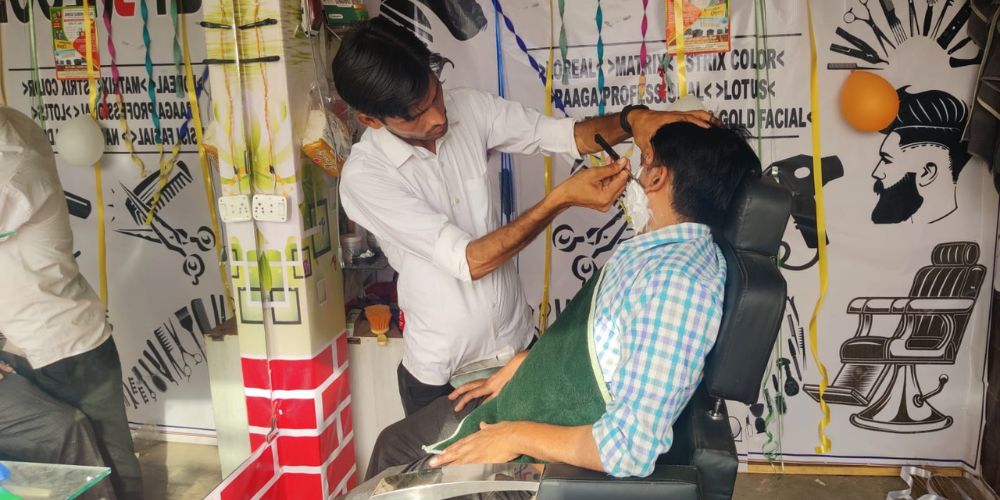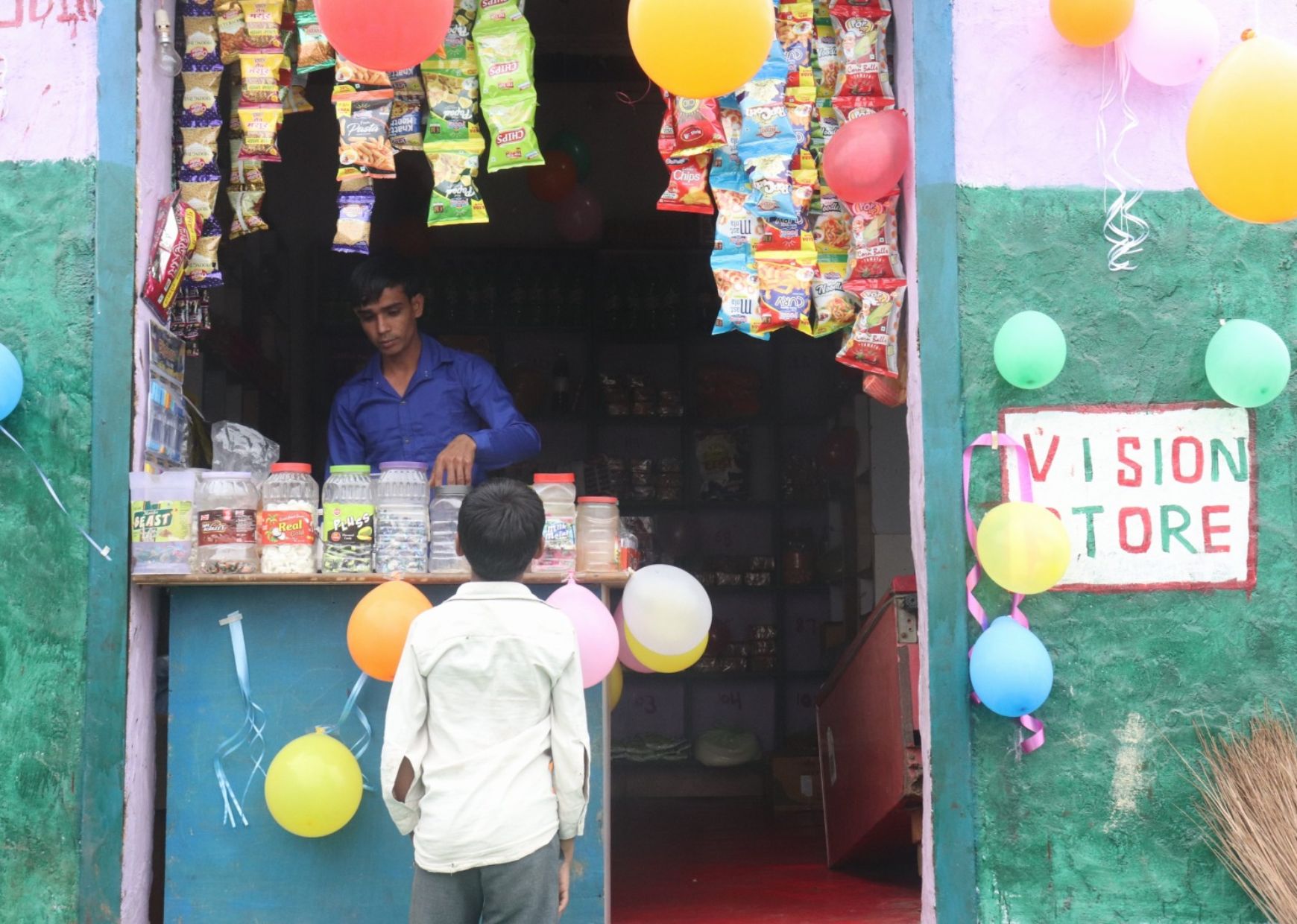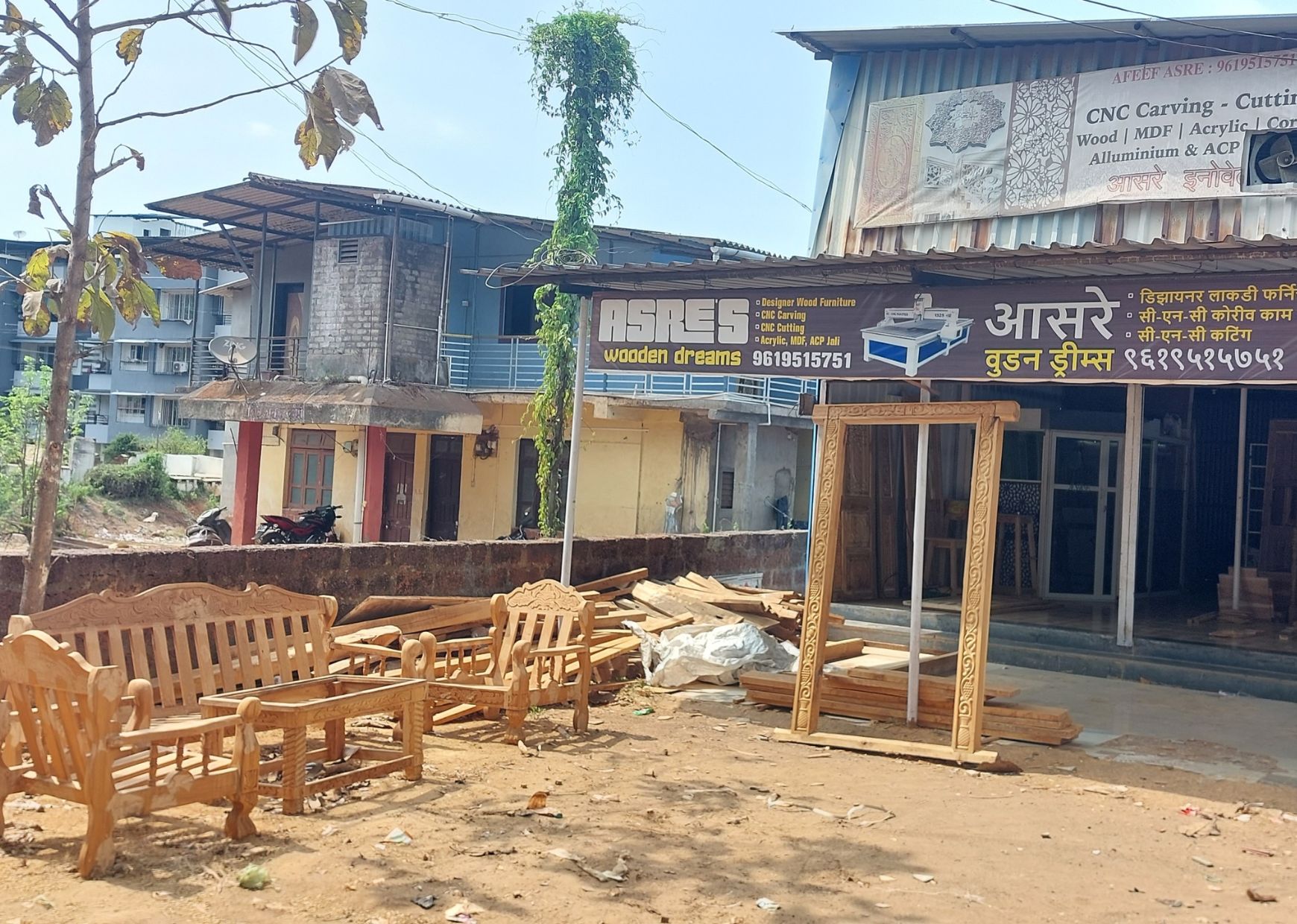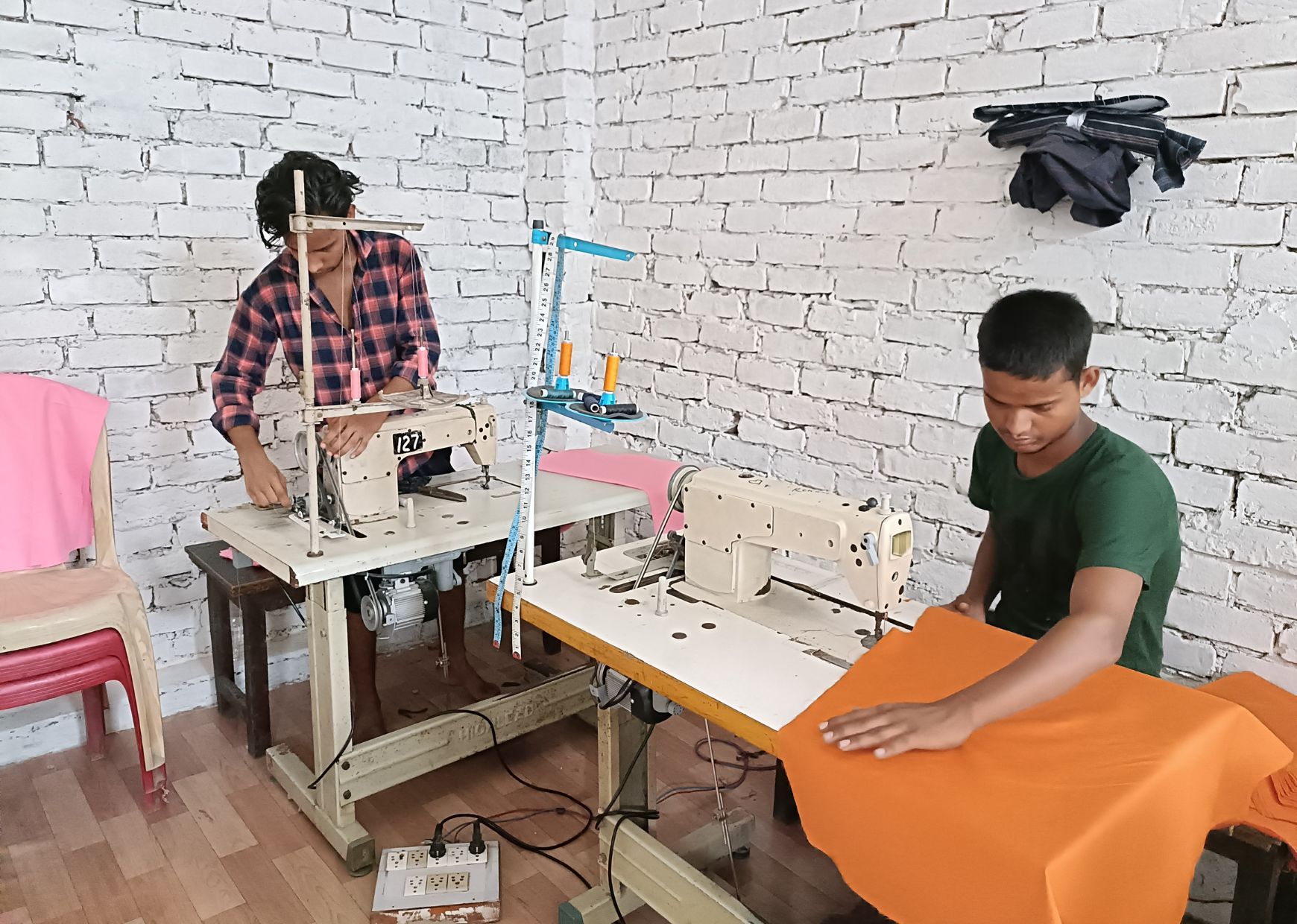From Hardship to Happiness: A Barber’s Tale of Success and Hope

Kaptan, 34, has been a barber for 12 years. It was both a necessity and an occupation associated with caste. He is a school dropout and got married in his late teens. His wife Anisha was in her mid-teens.
Teenage marriage is a common practice in Mewat district. Now he has the responsibility of looking after his wife and children. “After marriage, I had to earn; I couldn’t do anything as I was not educated, and this is our family occupation,” says Kaptan.
He ran his salon in a rented shop in Shikrawa. Life was dragging on with meager earnings, which worsened with the imposition of lockdown when his shop was closed. His financial condition deteriorated, and he struggled to meet his daily needs. During this period of financial hardship and mental distress, our Model Village Coordinator from Shikrawa introduced him to the Human Welfare Foundation.
The HWF, under its livelihood project, helped Kaptan set up a barbershop. All the basic equipment and essentials were provided by the HWF. As his shop was standardized with bigger mirrors and modern equipment, he attracted an increased number of customers.
Kaptan shared that “For the first few days, I got a good deal of customers that I could barely keep up with; the earnings were beyond expectations.”
Related News and Events
Rukmuddin’s Shop of Hope
Rukmuddin’s Shop of Hope Rukmuddin, 19, is a victim of teenage marriage – a common...
Cultivating An Entrepreneurial Mindset
In post-covid time, the Indian economy went through an invisible epidemic of unemployment...
A ‘Tailor-Made’ Success Story
Hailing from the Khairabad block of Sitapur district, Sufiyan always harbored a dream of...


